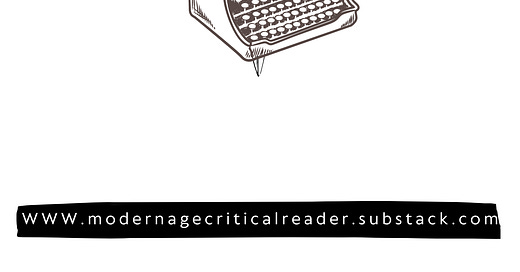I’ve been thinking lately about the social response to covid and other issues a lot recently. The recently published, and seemingly bilaterally infamous Pandemic Amnesty article, Musk’s often polarizing purchase of Twitter, and the FDA trying to make the covid vaccine part of the mandatory regular vaccine for children attending school. These are all major topics of discussion right now that have led to my publishing of this article. Accordingly, these are my thoughts about the public reaction I’ve seen to these events on social media.
The article, Pandemic Amnesty has been a very hot topic right now across the political aisle, and honestly for very good reason. Prof. Emily Oster expects us all to simply forgive and forget everything that’s happened during the pandemic. With no disrespect to Professor Oster, I believe she is critically unaware of exactly how everyone has been damaged by this pandemic and why her optimistic expectation is an unrealistic presentation of toxic forgiveness. Many people are damaged by the medical system in the US, be it that they were infected by covid, or developed a vaccine reaction, hospitals across America have lost our faith in the idea that going to a hospital for life-saving treatment means you’ll receive life-saving care. I’ve both experienced and encountered many people who have seen firsthand the misconduct that occurs in hospitals during the pandemic age. Nonconsensual sedation, untreated sores, unchanged IVs. My mother has consoled the family of those whose lungs were destroyed from being put on too high a pressure of oxygen. I was released from the same emergency room twice with a severe pulmonary embolism still inside me. These problems and many more have shattered the hearts of families everywhere and have left those in medicine that know better not knowing where to turn to.
Upon hearing the phrase toxic forgiveness you may think it sounds like an oxymoron akin to jumbo shrimp. However, toxic forgiveness is not a paradox, it’s a real problem we face in our modern world. In its simplest definition, toxic forgiveness is the act of providing forgiveness when remorse or an act of redemption is not reciprocated to the affected party. The government, insurance companies, news organizations, and vaccine manufacturers have not done anything worthy of our forgiveness. This is what we are all working for; to help the injured, and the families of the deceased, and to protect those that are still unharmed and their families from knowing the pain we experience daily. We do not just let go, and let the same atrocities continue on. We have to speak up for ourselves but do so with profound composure, no matter how difficult it may be, no matter how much we hurt for what we’ve lost. Our loved ones, our world deserves it because that is how activists will be looked at more seriously. This is not the time for complacent forgiveness, but this is also not the time for angry activism. This is the time for critical activism. This is our time to stand strong and tell our stories. This is the time to stand up for truth with careful and deliberate action. Write your local representatives and tell them what needs to change. I see numerous people online, well-intentioned that make their activism and display of anger. We have plenty of reasons to be angry. Many of us have family that died in this pandemic, and others are injured. But our anger does not belong in our activism because it only fuels one another’s rage. Angry activism only brings support from those most like-minded to you when in reality it’s those that don’t understand you need to hear you. They won’t want to listen if you don’t use the 5 W’s and make a composed case or explanation for yourself.
The basics of critical activism. The 5 W’s, who, what, when, where, and why. You probably first learned the 5 W’s in Kindergarten, but they’re still the key questions taught for effective journalism and are the most base critical thinking method they’ll teach you in an associated college class before moving on to more involved concepts. The truth is that most people forget how to actually implement the 5 questions when they’re still quite young, but in order to manage writing this article with my college schedule and chose the topic for today, I had to ask myself all of these questions. “What am I going to write, why am I writing it, who is it for, when am I going to write it, and where will I write it?” (If you don’t understand why where I write matters, I’ll discuss the importance of designing and choosing workspaces in another article, (If you just don’t understand why writers are picky about their workspaces in general, please let us know when you find out.)) In your activism, ask yourself these questions, repeat them if you must, and if you really feel that you have to, ask yourself the forbidden question, “how”? In all, we need to be strong and carry on.
Our efforts will not be in vain,
The Critical Reader




Very good food for thought, my dear Cody.
Another W for you. You are Wise beyond your years.
I will never forgive the medical community, the news media, Hollywood, and anyone else who pushed, shamed, ostracized those of us who resisted the regime!